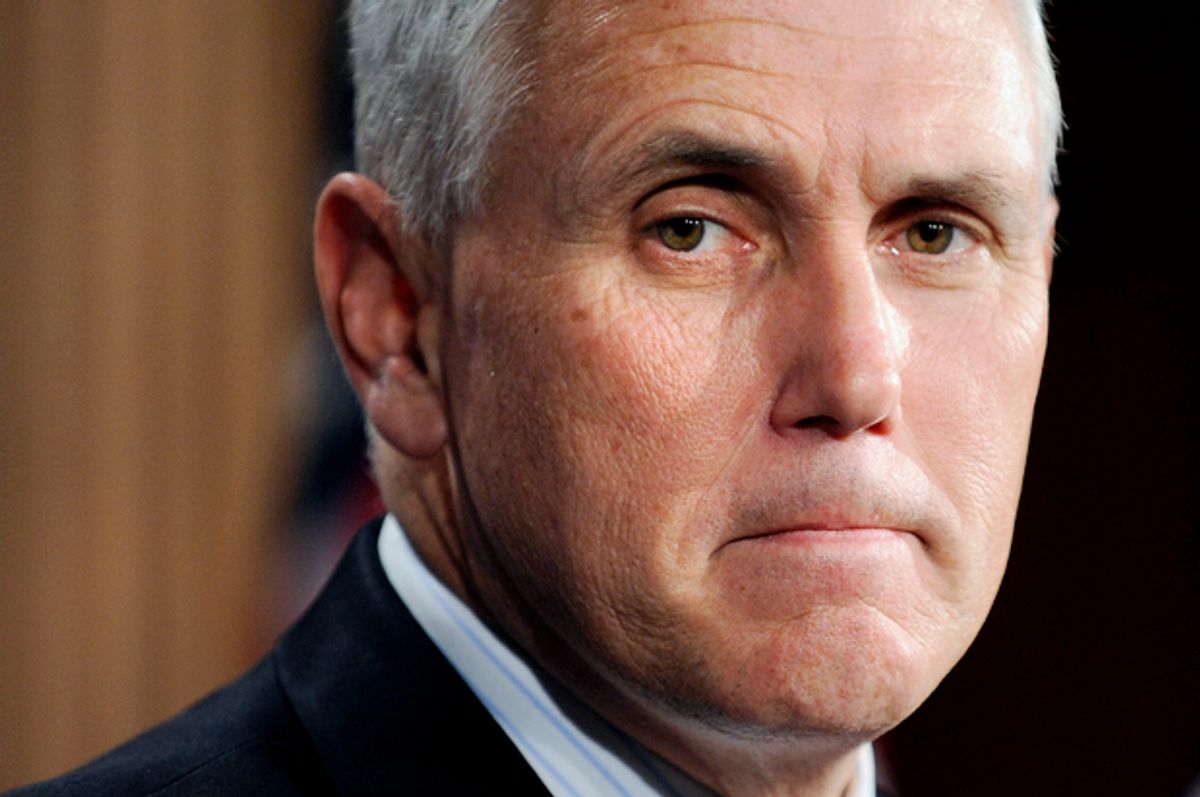Indiana will soon allow individuals and businesses to deny services to LGBT people, joining a growing movement to permit anti-LGBT discrimination on the grounds of "religious liberty."
In a mostly party-line vote on Monday, the GOP-controlled state House of Representatives voted 63 to 31 to approve legislation barring the state and localities from "substantially burdening" individuals' religious freedoms in the absence of a compelling government interest. Although the legislation does not explicitly mention discrimination against lesbian, gay, bisexual, and transgender people, the intent of such laws is to allow individuals and businesses to refuse services to LGBT people if they believe that providing services would burden their religious freedom.
The state Senate has already approved a similar measure, and Republican Gov. Mike Pence declared Monday that he would sign the license-to-discriminate legislation into law, according to the Indianapolis Star.
The Human Rights Campaign condemned Indiana's move to sanction anti-LGBT discrimination, noting that so-called religious liberty laws "could critically undermine the enforcement of state non-discrimination protections, and passing them will do serious harm to the business climate of these states—exposing the state to a wave of lawsuits, putting jobs at risk, and making major corporations think twice about investing in states that previously had pro-business reputations."
Then-Gov. Jan Brewer of Arizona vetoed a license-to-discriminate bill in 2014, but conservative lawmakers in states including Georgia, Oklahoma, Michigan, and Mississippi have either proposed or approved similar measures since. As conservatives come to terms with the likelihood that marriage equality will soon become the law of the land, many see religious liberty carve-outs as the next front in their battle against LGBT rights.
Last week, likely GOP presidential candidate Jeb Bush signaled his support for such measures, telling reporters in Georgia, "[R]eligious freedom is a serious issue, and it’s increasingly so, and I think people that act on their conscience shouldn’t be discriminated against, for sure." The former Florida governor added, “People have a right to do that, just as we need to be respectful for people who are in long-term committed relationships. Sorting that out is important.”



Shares